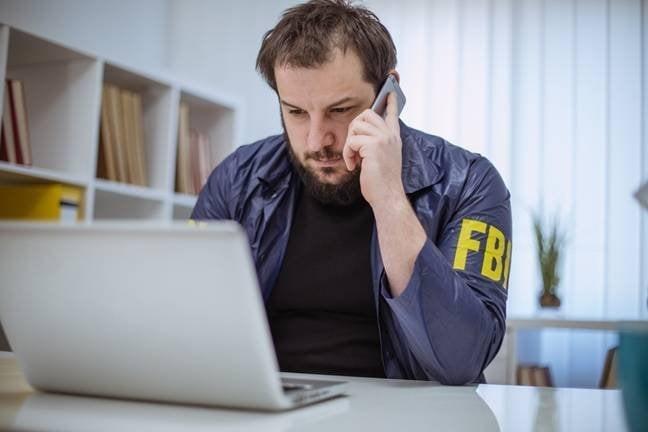Posted 10/7/25
On October 2nd, a former Seattle area community member was contacted by an FBI agent through a phone call. Though the agents did give their names, the community member contacted does not remember them, but they did identify as FBI and asked a question about a supposed action planned for the future, related to an “anonymous tip”. The community member said they deny the accusation and that they would not speak with them and hung up the phone. This phone call follows an attempt by the FBI to contact the community member’s estranged family. The community member does not know what was asked to the family members nor what level of cooperation there was by them.
After the call the contacted individual reached out to us and we recommended they contact the National Lawyers Guild federal defense hotline. They also began alerting their communities that an attempted contact had occured. All of these are integral parts of keeping broader community safe.
If you have been contacted by the FBI, or there have been attempts to contact people in your scene or circles, it is a good proactive anti-repression step to have a conversation with your roommates, family, and/or co-workers about what to do if they are contacted. Often, people more removed from the center of political organizing will not understand the importance of non-cooperation, and at times offer information to the authorities in a misguided effort to “help” the person being targeted. Talking to them about what to do if an agent comes to the door, calls them, or shows up at their job can help keep repeat visits or contacts from occurring.
It is important to treat FBI snooping with measured caution and avoid speculation and paranoia. Our movements are attempting to address injustices being perpetrated by powerful states – there will be moments of repression and intimidation by state agencies. What we can do as a broader community is refuse to isolate those targeted by the state, maintain a holistic security culture among ourselves, and support those facing repression.
Here are some points to remember for if and when an agent knocks:
- Don’t panic. Federal agents knocking on doors or making calls does not necessarily mean arrests are right around the corner. Don’t let them intimidate you into making bad decisions.
- Do not talk to them. If you are stopped on the street, at work, at home — if they arrest you, detain you, call you on the phone, or just walk up and start chatting about the weather – you do not need to talk to federal agents. Close the door, walk away, hang up. Say nothing.
- Communication with community is key. If you have been approached or contacted it is important that you let the broader community know. It’s not sketchy to say what the feds have done – they know they’ve done it. Info to relay: *Date & time of contact. *Location (at a home/at a workplace). *Agencies involved, if you don’t know that’s ok! Don’t guess. But note if they ID themselves or use that info- insignias on vehicles, badges or shirts. *Questions- if they did ask anything, be sure to note what was asked about (“They asked questions about the BLM movement” or “They asked about individuals involved with XYZ activity”.
- Don’t Guess! If you don’t have info about what they wanted, don’t make guesses as to what it is about — this can cause extra panic.
- Be Honest! Be clear that the intended target of the stop did not talk to the feds. If an unfortunate situation happened and people did answer questions, be open and transparent about that. Be clear that the target’s intention is to not cooperate — people are often caught off guard and answer the door without checking who is there, or answering a yes or no question before disengaging — this does not mean they are cooperating with the feds. They should communicate to the community that they have or will contact a lawyer and the National Lawyer’s Guild fed hotline.
- Post the info about the interaction publicly. Share facts, not implications or insinuations. If you’re not sure what to report or how to do it, contact PSPS (psps@riseup.net). Once the information is public, everyone can and should repost it and share it as widely as possible so we can all stay informed, safe, and aware.
- Call the NLG federal defense hotline (212-679-2811) at any point in this process. They are a very solid resource that people should take advantage of.
